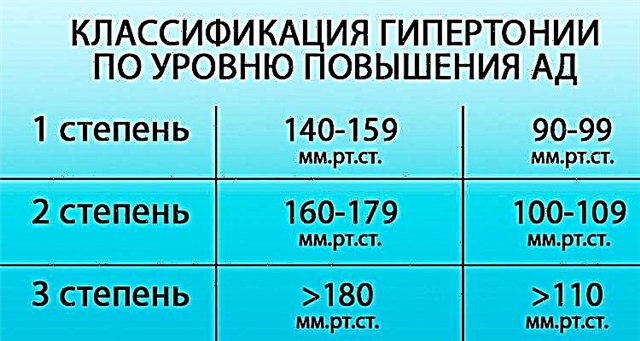 Subsequent inflammation of the nasopharynx and irritation of the throat mucosa provokes the release of copious amounts of mucus, which leads to rhinitis and cough syndrome. Methods for treating acute respiratory infections are determined by the type of pathogen, the site of inflammation and the characteristics of the course of the disease.
Subsequent inflammation of the nasopharynx and irritation of the throat mucosa provokes the release of copious amounts of mucus, which leads to rhinitis and cough syndrome. Methods for treating acute respiratory infections are determined by the type of pathogen, the site of inflammation and the characteristics of the course of the disease.
In most cases, malaise, nasal congestion, fever, and coughing occur as a result of respiratory tract infections. To ease the course of the disease and speed up recovery, you need to take antiviral, antipyretic, anti-inflammatory and antiseptic drugs.
The mechanism of development of ARI
Fever and cough are the main symptoms of the development of respiratory disease, which occur with inflammation of the upper or lower airways. Hypothermia, hypovitaminosis, overheating, contact with infected people, decreased immunity, etc. can provoke the development of the disease. Most often, the causative agents of acute respiratory infections are:
- bacteria (staphylococci, Pseudomonas aeruginosa, streptococci, meningococci);
- viruses (herpes virus, adenoviruses, influenza virus, rhinoviruses);
- fungi (molds, genus Candida).
It should be understood that fever, cough and rhinitis are protective and adaptive reactions that "help" the body to cope with the infection. In particular, a slight increase in temperature stimulates the production of interferon, which prevents the penetration of pathogens deep into the tissues. That is why temperatures up to 38 ° C should not be knocked down by antipyretics. Forced normalization of the temperature regime will only accelerate the development of the infection, which will subsequently lead to complications.
A runny nose occurs due to the abundant secretion of viscous phlegm in the nasal cavity. It contains a large number of lymphocytes and granulocytes, which destroy the infection directly in the foci of inflammation. In turn, coughing contributes to the evacuation of viscous mucus, pathogens and dust from the respiratory tract. Due to this, the drainage function of the bronchi is normalized and local immunity is enhanced.
Inadequate treatment of colds is fraught with an even greater decrease in immunity and the development of side diseases - tracheitis, bronchitis, pneumonia, etc.
Taken together, pathological symptoms negatively affect the patient's well-being, therefore, they must be stopped. But before using any medications and physiotherapy procedures, you need to consult with an ENT. Inappropriate use of medications can aggravate the course of the disease and cause side effects.
Treatment principles
Cough, runny nose, and a temperature of 37 ° C are classic symptoms of respiratory illness. They accompany flu, colds, laryngitis, bronchitis, sore throat, etc. However, inflammation in the respiratory organs can be provoked by both bacteria and viruses or fungi. Therefore, before using drugs, it is necessary to accurately determine the causative agent of the infection. To do this, it is advisable to pass biomaterials (swab from the throat and nasal cavity) for microbiological analysis.
A bacterial infection is treated with antibiotics, a viral infection with antiviral agents, and a fungal infection with antimycotics.
To alleviate the course of acute respiratory infections and improve the patient's well-being, the following treatment methods are used:
- pharmacotherapy - destroys the infection and eliminates inflammation in the respiratory tract, which helps to eliminate the symptoms of the disease;
- inhalation therapy - accelerates the regression of inflammation directly in the lesions and stimulates an increase in local immunity;
- physiotherapy - enhances tissue trophism, as a result of which the process of mucous membrane recovery in places of inflammation is accelerated;
- folk remedies - stimulate an increase in local and general immunity, as a result of which the recovery period is shortened.
As a rule, uncomplicated colds and acute respiratory infections are treated at home. Subject to bed rest and taking the necessary medications, the symptoms of the disease disappear within 4-5 days. The modern person has less and less time for a hobby. But I still try to set aside time for my favorite pastime - slots. On the site https://slotsmoney.com.ua/pin-up-casino-igrat-online I spend almost every evening. This is not only very interesting, but also profitable, as you can earn good prizes.
Cold treatment
A runny nose is one of the most unpleasant manifestations of a cold, which negatively affects the patient's well-being. Nasal congestion often leads to headaches, watery eyes, weakness, etc. Profuse nasal discharge occurs due to inflammation of the mucous membranes. To normalize mucus secretion, eliminate puffiness and restore the patency of the nasal passages, local and systemic drugs are used:
Nasal preparations
Sprays, solutions and drops for intranasal administration are used to facilitate nasal breathing and relieve inflammation in the nasopharynx. They are prescribed for the treatment of sinusitis, sinusitis, viral and bacterial rhinitis, sphenoiditis, etc. Several types of nasal medications are used to relieve nasal congestion and rhinitis:
- antimicrobial ("Polydexa, Bioparox") - reduce the number of bacteria in the nasal cavity and eliminate purulent inflammation;
- antiviral (IRS-19, Grippferon) - destroy pathogenic viruses and stop inflammation;
- moisturizers ("Physiomer", "Marimer") - cleanse the nasal passages of mucus and moisturize the inner surface of the nasal canals and paranasal sinuses;
- mucolytics ("Rinofluimucil", "Sinuforte") - thin the mucus in the paranasal sinuses and contribute to its evacuation;
- vasoconstrictor ("Tizin", "Galazolin") - reduce swelling and mucus secretion, thereby facilitating nasal breathing.
Important! Antimicrobial drops can only be used to treat bacterial rhinitis, and antiviral drops can only be used to treat viral rhinitis.
Tablets and lozenges
Tablets relieve a runny nose and cough by eliminating inflammation in the airways. They contain substances that prevent the reproduction of infectious agents and accelerate the regeneration of mucous membranes. Typically, the following types of medications are used in the treatment of colds:
- Rinopront;
- "Coldakt";
- "Cinnabsin";
- "Remantadin";
- "Cetrin".
Some drugs contain antihistamines that help eliminate allergic reactions. Due to this, swelling in the mucous membrane decreases, which helps to restore the patency of the nasal passages and facilitate breathing.
Cough treatment
You can eliminate cough with the help of solutions for irrigation of the laryngopharynx, as well as antitussives and expectorants. The parallel use of those and other agents contributes to the regression of inflammation and the speedy elimination of the cough syndrome. Depending on the nature of the cough, the following types of medications are used to treat adults:
Antitussives and expectorants
To stop a dry cough, you need to use antitussive tablets and capsules. They contain substances that inhibit the activity of the cough centers, thereby suppressing the cough reflex.This group of drugs is used exclusively in the absence of mucus discharge during coughing:
- Codelac;
- Falimint;
- Haliksol;
- Ambrohexal;
- Stoptussin.
 According to practical observations, antitussive drugs can be taken for no more than 3 days in a row. Approximately 72 hours after infection of the ENT organs in the mucous membrane of the bronchi and trachea, mucus begins to be produced, which, in the absence of coughing, will accumulate in the bronchi. Therefore, after 3-4 days, experts recommend replacing the antitussive tablets with secretolytic drugs, i.e. expectorant action:
According to practical observations, antitussive drugs can be taken for no more than 3 days in a row. Approximately 72 hours after infection of the ENT organs in the mucous membrane of the bronchi and trachea, mucus begins to be produced, which, in the absence of coughing, will accumulate in the bronchi. Therefore, after 3-4 days, experts recommend replacing the antitussive tablets with secretolytic drugs, i.e. expectorant action:
- "Bronholitin";
- "Doctor Mom";
- "Mukaltin";
- Ambroxol;
- "Fluditek".
Important! Overdose of drugs leads to dizziness, high blood pressure and nervous overexcitement.
Rinsing solutions
Rinsing solutions are prescribed to disinfect the laryngopharynx and flush out pathogens from the lesions. Topical preparations have a pronounced anti-inflammatory, wound healing and antiseptic effect. Therefore, regular debridement of the throat with solutions accelerates the recovery and restoration of local immunity. The most effective remedies for acute respiratory infections include:
- Stopangin;
- "Potassium permanganate";
- Furacilin;
- Elekasol;
- Eludril.
To achieve the desired effect, rinsing must be done daily at least 3-4 times a day. Before use, the solution must be warmed up to a comfortable temperature.
How to normalize the temperature?
A temperature of 37, and a cough and a runny nose, indicate that the body is fighting infection. According to experts, it is impossible to bring down the temperature below 38.5 ° C, as this will inevitably lead to a decrease in immunity and the rapid development of infection. If the fever lasts no more than 3-4 days, you should not use antipyretics.
Antipyretics are advisable only if the fever becomes febrile, i.e. when the body temperature rises to 38 ° C. The following antipyretics can be used to help normalize thermoregulation and prevent dehydration:
- Ibuprofen;
- "Aspirin";
- "Paracetamol";
- Diclofenac;
- "Nise".
To quickly get rid of the symptoms of a respiratory disease, it is necessary to start drug treatment on time. In this case, one should not forget about adherence to a special therapeutic regimen.
For 3-4 days, it is recommended to give up serious physical activity and the use of fatty foods.
To prevent dehydration and remove toxic substances from the body, doctors advise drinking at least 1.5 liters of warm alkaline drink per day. As drinks, you can use herbal teas, warm milk with honey, green or black tea with lemon.



